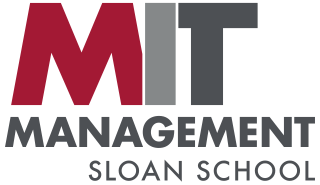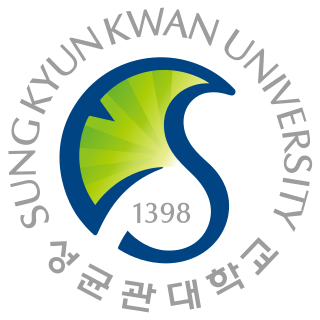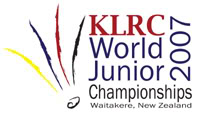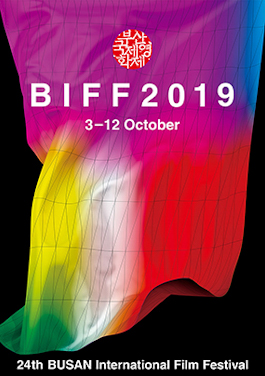Related Research Articles

The Sloan School of Management at Massachusetts Institute of Technology is the business school of the Massachusetts Institute of Technology, a private university in Cambridge, Massachusetts.

The Stanford Graduate School of Business is the graduate business school of Stanford University, a private research university in Stanford, California. For several years it has been the most selective business school in the United States, admitting only about 6% of applicants.

Prohibitory traffic signs are used to prohibit certain types of manoeuvres or some types of traffic.

Sungkyunkwan University is a private research university with campuses in Seoul and Suwon, South Korea.

Haplogroup M is a human mitochondrial DNA (mtDNA) haplogroup. An enormous haplogroup spanning all the continents, the macro-haplogroup M, like its sibling the macro-haplogroup N, is a descendant of the haplogroup L3.

In human mitochondrial genetics, Haplogroup D is a human mitochondrial DNA (mtDNA) haplogroup. It is a descendant haplogroup of haplogroup M, thought to have arisen somewhere in East Asia, between roughly 60,000 and 35,000 years ago.

CJ Group (Korean: 씨제이) is a South Korean conglomerate holding company, operating internationally. It is one of the largest chaebol headquartered in Seoul, South Korea. It comprises numerous businesses in various industries of food and food service, logistics, pharmaceutics and biotechnology, entertainment and media, Pager and Telephone. CJ Group was originally a branch of Samsung.

Pholcus is a genus of spiders of long-bodied cellar spider and allies in the family Pholcidae, with 375 described species as of January 2023.

Clubiona is a genus of sac spiders that was first described by Pierre André Latreille in 1804.
Samsung Engineering Co., Ltd. is a Korean construction and project management (EPC&PM) company, it provides a full range of engineering services including feasibility studies, design, procurement, construction, and commissioning.

The 2007 BWF World Junior Championships was an international badminton tournament held in Waitakere City, New Zealand.
Viacom International Inc. is the international division of the Paramount Media Networks subsidiary of Paramount Global that oversees the production, broadcasting and promotion of its brands outside of the United States. These brands include Paramount Network, Comedy Central, MTV, Nickelodeon and BET, as well as CBS-branded channels co-owned with AMC Networks International. PIN also owned a 30% stake in the Rainbow S.p.A. animation studio in Italy from 2011 to 2023 and a stake in Viacom18, an Indian joint venture with domestic partner TV18, from 2007 to 2024.

Sinopoda is a genus of Asian huntsman spiders that was first described by Peter Jäger in 1999.
The STAR Erasmus Consulting (SEC), formerly known as STAR Erasmus Consultancy Project, is a project of STAR, the study association of the Rotterdam School of Management (RSM), Erasmus University Rotterdam (EUR). SEC is the largest non-profit student research project in the Netherlands. It is a consultancy project in which tailor-made research is offered to Dutch companies that have an interest in expanding their business to an emerging country. Every year, the SEC project is carried out by 25 carefully selected students of the Rotterdam School of Management (RSM) Erasmus University. Each year, two professors guide the project to uphold the (academic) quality of the project. In previous years, SEC has completed projects in countries such as China, Mexico, India, the Republic of Korea, Vietnam, Brazil and Thailand.
The 22nd Busan International Film Festival was held from October 12 to October 21, 2017 at the Busan Cinema Center and hosted by Jang Dong-gun and Im Yoon-ah. A total of 300 films from 75 countries were screened at the festival, including 100 world premieres and 29 international premieres.

The 24th Busan International Film Festival was held from October 3 to October 12, 2019 at the Busan Cinema Center in Busan, South Korea. A total of 299 films from 85 countries were screened at the festival, including 118 world premieres and 27 international premieres.
References
- 대학 교직원 인재영입 `붐` (Competition among universities to secure talents)
- 성균관대‥영어로 수업ㆍ美MIT 슬로언 등과 연계 (SKK GSB in collaboration with MIT Sloan)
- 성균관대, 삼성재단 영입 10주년 (The alliance between SKKU and Samsung)
- 국내에서 만나는 국제수준의 MBA (SKK GSB - world class MBA program in Korea)
- 성균관대 MIT MBA 첫 외국인 졸업생 (International students in the 1st SKK GSB alumni)
- SKK GSB as a best example of Samsung's management philosophy
- Samsung supports Seoul school
- 성대·MIT, MBA 과정 출범
- 월리엄 파운즈 MIT 前학장 "외국 MBA 베껴서는 절대 성공못해"
- 성균관대 경영대학원 ‥ MIT대 커리큘럼 이용
- KBS News: 토착 MBA 시대
- Samsung Educational Programs on the Moscow State University site